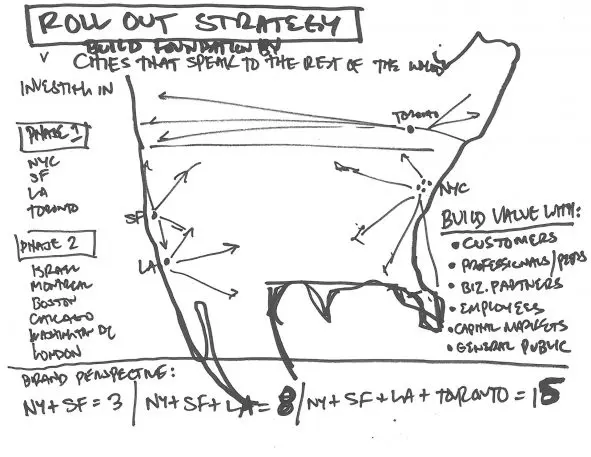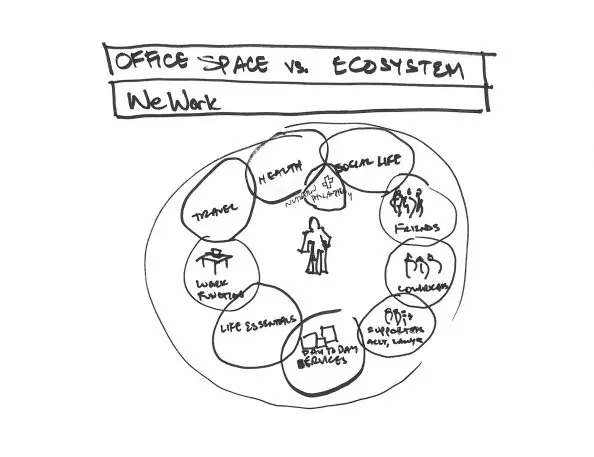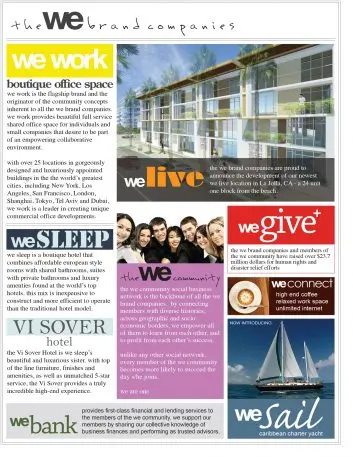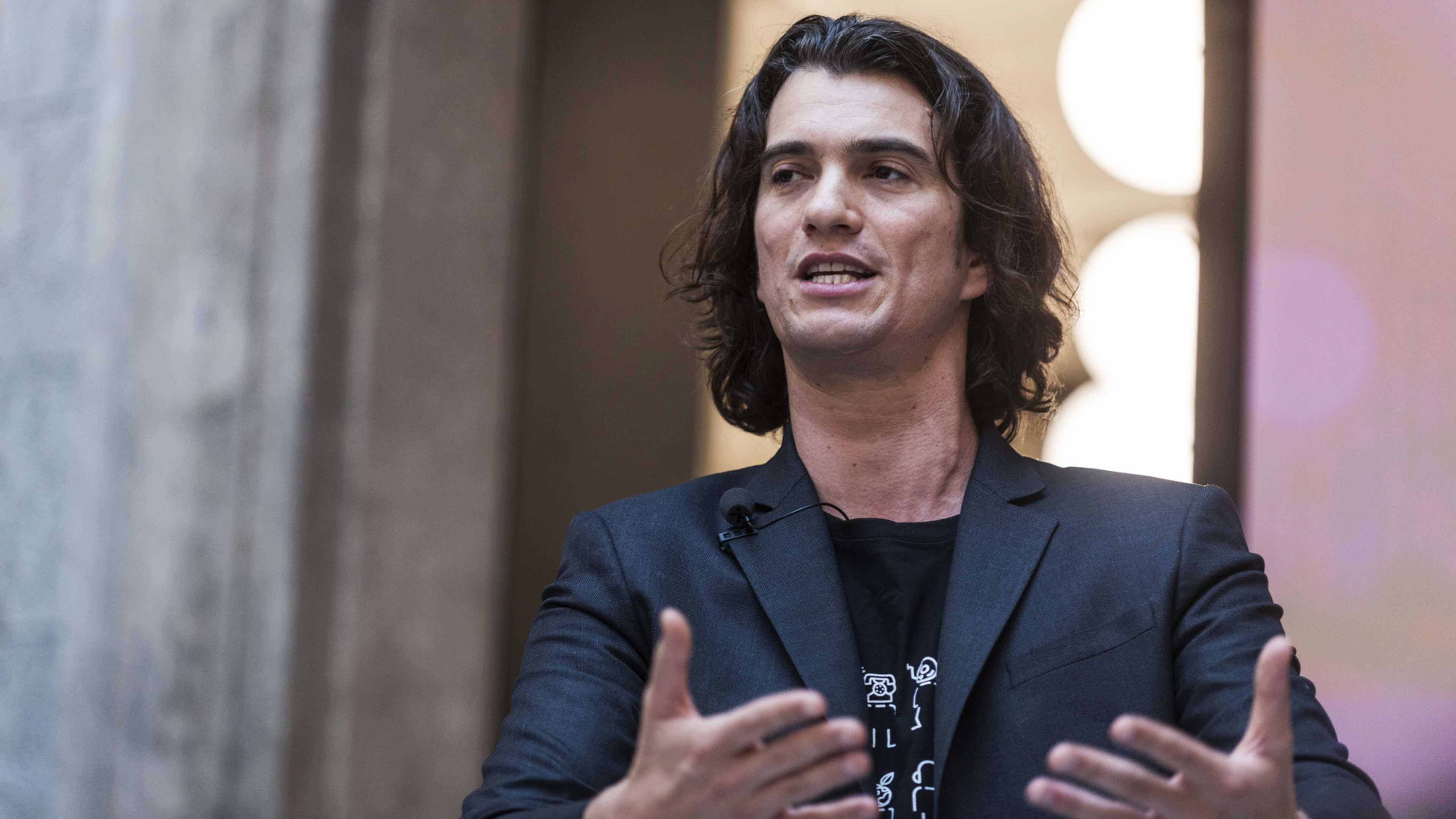Shortly before Christmas, Adam Neumann, CEO of WeWork, was about to sign a deal that would have changed everything for him and his company. His largest financial backer, SoftBank’s Masayoshi Son, was prepared to give him enough money to fuel not only WeWork’s ongoing and massive growth plans, but also to buy out all his other existing investors. The numbers on the table ranged as high as $20 billion, at a valuation that hovered close to $50 billion. With one signature, Neumann would have unprecedented freedom as an entrepreneur to build out his most ambitious plans for his company.
Then Son called with bad news.
Just as both sides were preparing to close the deal, December’s market turmoil clobbered SoftBank’s stock–down 20% since late November. The highly anticipated IPO of its Japanese telecom unit was pummeled 14% on its first day of trading. (SoftBank is a conglomerate that includes a variety of tech holdings and the VisionFund, a $100 billion investment arm.)
Son “called me,” Neumann recalls, in an interview on Monday with Fast Company. “He said, ‘We’re partners. What should we do?'” Son told him that the deal SoftBank and WeWork had spent months negotiating was no longer viable.
It was a blow, but those inside WeWork who worked closely with Neumann on the deal say that, almost immediately, he returned to the negotiating table. “It took a day for Adam to recover,” says one source who was close to the negotiations.
Working around the clock, through the holidays into early January, WeWork and SoftBank hammered out a revised deal, announced this week, for $2 billion of new capital at a $47 billion valuation. WeWork now has more than $10 billion of funding from SoftBank and close to $7 billion on its balance sheet.
While the numbers are still eye-popping, for WeWork the reduced deal terms raise questions for a company that has fueled much of its growth from its ability to raise and spend billions. For the first three quarters of 2018, it generated $1.25 billion in revenues but lost $1.22 billion.
The company, which will turn nine this year, hasn’t yet weathered a real economic downturn of the kind that economists are predicting for 2019 and 2020. One telltale sign: WeWork says that leasing prices in all but two cities it operates in are declining.
Still, Neumann insists that nothing will throw WeWork off pace. The company maintains that lower lease prices are good for WeWork’s business, and softening markets could open new opportunities. “When 2019 comes and if the world goes into a real downturn, the one thing you are not going to see us do is be afraid or slow down or take less risks,” he says. He spoke to me by videoconference from his office in Los Angeles, sporting a black T-shirt that said “Creator.” He wore a cast on one of his fingers–he busted it last week surfing an 18-foot wave in Hawaii with surfer Laird Hamilton. “For me, a downturn is not scary. It’s an opportunity,” Neumann says.

This week at an internal annual conference, the WeWork Global Summit, he will announce a major corporate and strategic shift. Going forward, the company will no longer be called WeWork but rather The We Company. The new structure is part of Neumann’s heady ambition to push the company’s market and opportunity beyond commercial real estate. Rather than just renting desks, the company aims to encompass all aspects of people’s lives, in both physical and digital worlds, he says.
The We Company will be comprised of three main business units: WeWork, its main office business; WeLive, a fledgling residential unit; and WeGrow, a still evolving business that currently includes an elementary school and a coding academy. Although the company could not provide specifics, it says plans are in the works to build out its residential and education units this year. Also coming in 2019 are more acquisitions and new hires. The company aims to add 1,000 engineers.

Moving beyond office space, Neumann says, has always been a part of the plan. Recently he and his cofounder Miguel McKelvey found a old pitch deck they put together six months before starting WeWork. It dates back to 2009, and on it they mapped out plans for everything from WeSleep to WeSail to WeBank. Now, Neumann says, the company is in a position financially and logistically to execute on these ambitions. When asked about WeBank, Neumann confirms, “It’s coming,” but he declines to offer specifics.
Now, starting 2019 flush with cash and brio, the pressure on WeWork and Neumann is mounting. Can the company live up to its $47 billion valuation? Can it survive a real economic downturn or a more restrictive environment for cheap capital?
Neumann says he and his team thrive under pressure. “Do you know how long it takes a diamond to be created?” he asks me. “Half a million to 4 million years. I love that analogy: to make something very precious, you have to apply a lot of pressure.”

Recognize your brand’s excellence by applying to this year’s Brands That Matter Awards before the early-rate deadline, May 3.
